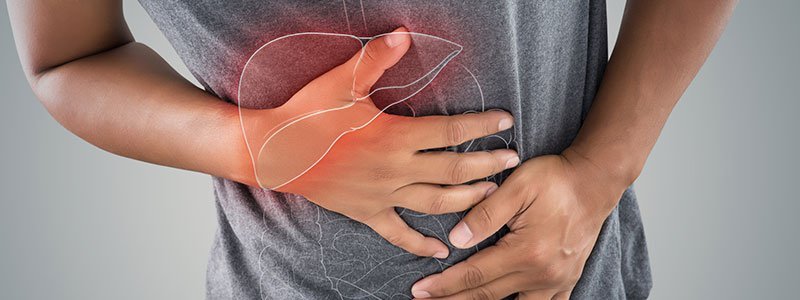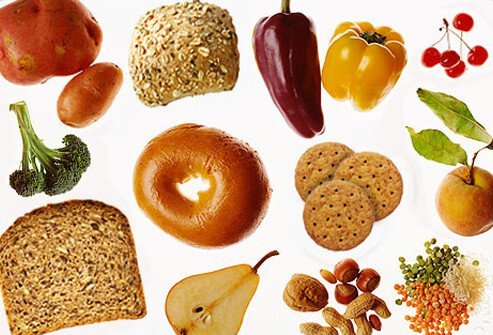
Other than eating the right food, eating slowly and chewing food well can prevent bloating.
Bloating is a condition where your abdomen feels full, tight, and distended often due to gas. It could be accompanied by other symptoms, such as belching, flatulence, and pain.
From time to time, everyone might have experienced these common digestive issues, which makes it difficult to do daily activities.
Here are some scientifically proven ways to reduce bloating quickly.
3 most common ways of expelling gas
- Burping or belching: Swallowed air may stay in the stomach for a period, released through belching.
- Abdominal bloating: This typically occurs when the air is trapped in the colon or small bowel.
- Flatus: Air passed through the bowel is typically passed as flatus.
12 proven ways to reduce or stop bloating
- Eat slowly
- Other than eating the right food, eating slowly and chewing food well can prevent bloating.
- Gobbling down meals at a faster pace can send a lot of air into the stomach, which can lead to the balloon feeling, whereas chewing your food properly provides sufficient time.
- Eat at regular intervals
- Huge gaps between meal timing can lead to the formation of gas by the gut bacteria.
- Having small and frequent meals throughout the day can help keep your digestive system moving. Even a handful of nuts or fruits between your meals can prevent bloating and swollen abdomen.
- Consume a fibrous diet to help regular bowel movements
- Consuming enough fiber helps food pass through your digestive tract at the proper pace.
- This process is extremely critical because if the process is too slow, your poop hardens and may lead to constipation, and if it’s too fast, the result is diarrhea.
- Two types of fiber include:
- Soluble fiber: This type of fiber forms a gummy gel in the digestive tract, which slows down food moving through the system, thus helping add bulk to poop to make it a little more solid.
- Insoluble fiber: This type of fiber holds onto water to make stool softer and easier to pass.
- Avoid overeating
- It is very common to feel bloated after taking a big meal, especially when it is eaten quickly.
- When you eat at a higher pace, you might fail to realize the amount of food that you have consumed and often end up eating more than usual, resulting in a bloated and stuffed feeling.
- Try not to overfill your plate, practice mindful eating, and chew every bite nicely.
- Stay hydrated
- Fluids work together with fiber to keep the digestive system running the way it should.
- Keeping the body hydrated provides the water that softens the stool. In the absence of adequate water intake, the poop may get dry and hard, making it a lot tougher to push out.
- Foods that may help prevent or treat constipation
- Quinoa: This edible seed contains almost double the fiber of most other grains, making it a poop-moving powerhouse in the digestive system.
- Oatmeal: Beginning your morning with oatmeal may help you poop earlier in the day and flush out waste hanging around from the previous day.
- Pineapple: It contains a natural enzyme called bromelain that aids digestion by breaking down proteins in the food moving through your system and improves the ability to process it.
- Watermelon: Watermelon is more than 90 percent water; it can help hydrate properly to beat the bloat. It is fiber-rich and helps improve gut functioning.
- Apples: This fruit includes pectin, a gel-forming fiber, that helps keep the digestive system healthy.
- Berries: Blueberries, blackberries, raspberries, and strawberries offer high levels of fiber and relatively high water content, which could help maintain hydration.
- Green tea: Apart from boosting hydration levels, green tea acts as a natural laxative to unclog the gut.
- Celery: These green stalks are about 95 percent water along with a healthy dose of fiber. In addition, celery is loaded with a sugar alcohol called mannitol, which softens stool and provides a laxative effect.
- Ginger: This spice has been approached to resolve gastric distress for centuries because it relaxes your intestines and breaks down proteins with an enzyme called zingibain.
- Cucumbers: It contains 96 percent water that helps wash away digestive issues created by dehydration.
- Fermented foods: Kefir, kimchi, kombucha, and sauerkraut can prevent bloating.
- Include probiotics
- Including probiotics in your diet helps you get rid of bad gut health, one of the major causes of bloating.
- Probiotics, such as yogurt, kefir, and pickles help increase the number of good gut bacteria and speed up the digestion process.
- Several studies have reported that probiotics reduce gas production and bloating in people with digestive issues.
- Limit sodium intake
- Salty snacks or foods contain high amounts of sodium that can lead to water retention in the body, making you feel stuffy, swollen, and bloated.
- Try to cut down on salty, processed, spicy, and fried foods as much as possible.
- Limit specific foods that may trigger bloating
- Vegetables: Broccoli, cauliflower, brussels sprouts, and cabbage.
- Fruits: Prunes, apples, pears, and peaches.
- Whole grains: Wheat, oats, wheat germ, and wheat bran.
- Legumes: Beans, lentils, peas, and baked beans.
- Sugar alcohols and artificial sweeteners: Xylitol, sorbitol, and mannitol (found in artificial sweeteners and sugar-free chewing gums).
- Drinks: Soda and other carbonated beverages.
- Beverages: Tea and coffee.
- Watch out for food allergies and intolerances
- Food allergies and intolerance can cause discomfort and make you feel gassy.
- If you feel bloated after eating a particular food, then it could be a symptom of food intolerance or allergies.
- Some common ingredients that may cause intolerance include lactose, fructose, eggs, and gluten.
- Avoid swallowing excess air
- People tend to swallow a lot of air and gases when they consume carbonated drinks, chew gums, or drink a beverage through a straw.
- This excess of air can cause discomfort in the abdomen.
- Do not overdo high-fiber and fatty or processed foods
- Be careful while consuming high-fiber foods, such as legumes, beans, and lentils.
- Fiber can produce a lot of gas.
- Fatty foods can slow down digestion and can cause problems for people already suffering from bloating issues.

QUESTION
Pancreatitis is inflammation of an organ in the abdomen called the pancreas. See Answer
13 additional tips to help prevent or stop bloating
- Have your dentures checked for a good fit
- Increase physical activity during the day
- Sit up straight after eating
- Take a stroll after eating
- Avoid or limit alcohol consumption
- Massage your stomach from the right to the left to release trapped wind
- Avoid large meals late at night before bed
- Drink beverages at room temperature
- Try natural home remedies and over-the-counter medications to reduce gas and bloating
- Natural remedies for gas include:
- Peppermint tea
- Chamomile tea
- Anise
- Caraway
- Coriander
- Fennel
- Turmeric
- Over-the-counter gas remedies include:
- Pepto-Bismol (bismuth subsalicylate)
- Activated charcoal
- Antacids (simethicone)
- Lactase enzyme (Lactaid or Dairy Ease)
- Beano (alpha-galactosid)
- Try a low fermentable oligosaccharides, disaccharides, monosaccharides, and polyols (FODMAP) diet
- Manage weight and avoid a rapid gain
Latest Digestion News
Daily Health News
Trending on MedicineNet
What causes bloating?
Intestinal gas is made up of oxygen, nitrogen, carbon dioxide, hydrogen, and methane. It is caused by various factors. The two most common ones are eating behaviors and the bacterial fermentation of certain foods.
- Food behaviors and activity levels
- Unhealthy habits, such as gulping foods fast, and alcohol intake with eating can cause swallowing of excess air.
- Bulky foods, such as lettuce, cabbage, and dense bread, not chewed into small enough pieces can increase swallowed air too.
- Behaviors that can lead to gas production
- Talking while eating
- Eating when upset or stressed
- Smoking or chewing tobacco
- Using a straw or sports bottle
- Overloading stomach
- Deep sighing
- Drinking very hot or cold beverages
- Chewing gum or eating hard candies
- Drinking from a water fountain
- Tight-fitting garments
- Long-term use of cold-relieving medications
- Bacterial fermentation
- The colon is filled with bacteria, yeasts, and fungi, which break down the foods (mostly different forms of carbohydrates) that are not digested by the small intestine.
- These bacteria particularly enjoy undigested carbohydrates, and the fermentation leads to gas production, resulting in hydrogen and methane expelled as flatus.
- Lactose (found in dairy products) is one of the most common sources of gas-causing carbohydrates, affecting lactose intolerant people who do not have the enzyme lactase needed to digest the carbohydrate.
- Beans are the second most common carbohydrate sources implicated in gas production.
Moreover, stool backed up in the bowels (constipation) can cause gas and distention of the lower stomach.
Other problems that may trigger an immune reaction and promote bloating in some people include:

SLIDESHOW
Super Tips to Boost Digestive Health: Bloating, Constipation, and More See Slideshow
Medically Reviewed on 6/24/2022
References
Cleveland Clinic. Foods That Help Reduce Bloating. https://health.clevelandclinic.org/foods-that-help-with-bloating/
WebMD. Why Am I Constipated? https://www.webmd.com/digestive-disorders/ss/slideshow-reasons-constipated
Lacy BE, Gabbard SL, Crowell MD. Pathophysiology, evaluation, and treatment of bloating: hope, hype, or hot air?. Gastroenterol Hepatol (N Y). 2011;7(11):729-739. https://www.ncbi.nlm.nih.gov/pmc/articles/PMC3264926/